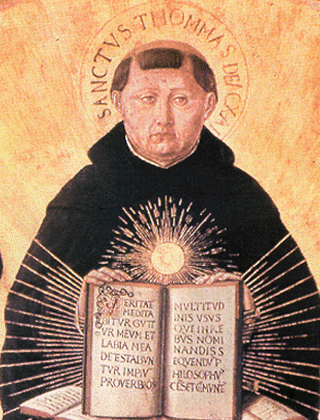Explaining Origins
 |
| Charles Darwin, the Father of Evolution |
Charles Darwin’s Theory of
Evolution changed the way man viewed the world and himself. It was a scientific
hypothesis that reduced man to a mere animal equivalent to apes. It was also a
theory which also tried to prove how the world came to exist bereft of a
Creator-God. And of all the theories which is Darwinian in character and is the
most accepted theory at present is the Big Bang Theory. Scientists have
presented this theory as if it were already a fact. This is clearly evident in
Discovery Channel programs and even in our science textbooks. The problem here
is that the Big Bang Theory is just that—a theory. Why would scientists be so
worked up on it? It’s simple. They just want to prove that God does not exist
and that He is not the author of this world and that everything around us was
just a product of mere chance.
I became acquainted with
St. Thomas’ Five Ways in our Christian Living class during my high school days.
Recently, already being a seminarian, I have come to appreciate it more. What
Big Bang theorists uphold can easily be used against them using the Five Ways
to prove God’s existence. Applying the First and Second Ways of St. Thomas
Aquinas one can see that the Big Bang itself needed a Cause in order for it to
exist and a Mover that would allow it to “blow up”. The Big Bang could not have
“blown up” on its own. It surely needed a Spark that would ignite it. From
this, one could proceed to the Third Way or the Argument from Possibility and
Necessity. What was there before there was the Big Bang? Surely, the Big Bang
did not just come into being by itself. If there was nothing, then how
could something come out of nothing? There must surely be a being that was not
contigent, that was absolutely necessary in order that other things would come
into being. Therefore, there must be a being that exists of its own necessity,
and does not receive its existence from another being, but rather causes them.
This would be God.
Then one could proceed to
the Fourth Way or the Argument of Gradation of Being that there is a gradation
to be found in things: some are better or worse than others. We all thought at
first that the our sun was the largest star only to learn later on that it is
just only a middle-size star. There are larger stars and smaller stars than our
sun. So far, we have discovered that our sun is the only star that supports
life on a planet. But then there may be other stars which might be better than
the sun in supporting life. Through this, we arrive at the notion of a “perfect
life supporting” star. From this and other more similar examples, we arrive at
the notion of perfection. There must be something which is to all beings the
cause of their being, goodness, and every other perfection and this would be
God. Then, with the Fifth Way or the Argument from Design, one could emphasize
how even out of the “chaos” of the Big Bang, everything came into order and
what we have now is the universe and our own solar system. Surely, all the
particles that came out of the Big Bang could not have just come together to
form planets and stars and galaxies by mere chance? Surely, there must be
something, or someone who could have put all of these into the exact order and
design. This intelligent being should exist by whom all natural things are
directed to their end; this would be God.
Even though St. Thomas has
been accused of reaching a priori propositions
from a posteriori ones, his Five Ways
still offer a significant way of thought for our present age. His philosophy is
not so ethereal unlike that of St. Anselm. With the use of simple words, one
could teach his philosophy to common people.
 |
| St. Thomas Aquinas, Doctor of the Church |
It is no wonder that St.
Thomas has been called one of the greatest philosophers of the medieval age.
His clear distinction between philosophy and theology has cleared the hazy
clouds which once cluttered between faith and reason. This is why his
philosophy is indispensable in seminary formation. It is a perennial kind of
thought that surpasses time and space. It finds itself totally relevant now as
it was in medieval times.


Comments